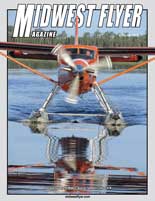by Dr. John Beasley, M.D.
A couple of issues ago, I made a plug for letting the driver’s license substitute for a 3rd Class Medical (and the FAA hasn’t revoked my AME certificate yet for saying so). As I thought more about it, I started considering that not only would it be much cheaper with less hassle and probably quite safe to do this, but there might actually be an increase in safety.
Huh? How could doing less medical checking lead to increases in safety? Well, with any intervention (medical or policy), we also have to look at side effects, and a reasonable person might ask, are there risks to checking out pilots with an AME exam? Actually, there may be. Here’s the problem.
Pilots, perhaps more than almost any other group, feel at risk for harms (loss of medical certification) that might come from seeking help for physical or psychological problems. This may lead pilots to fail in seeking help for physical or psychological issues, when perhaps they should.
A colleague brought to my attention recently a very successful pilot who committed suicide. Now, I don’t know if he was under care for his depression or not, but it’s not hard to imagine that perhaps he chose to go untreated for fear of losing the medical. If he didn’t, I’m sure others have. There is some data to support this idea.
A recent informal survey conducted by AVweb received over 500 anonymous responses for the following three questions: (See http://kcubbin.tripod.com/id3.html for more information). I’m most concerned about Question #1. Admittedly, the survey responses may have been quite biased (those having problems being more likely to respond to the survey), but at the same time I don’t think we can blow off the results:
1. Have you ever had a medical condition for which you chose not to seek treatment for fear that disclosure might jeopardize your flying? (567 responses)
YES – 46%
NO – 54%
2. Have you ever had a medical condition for which you sought medical treatment, but then failed to disclose it on your FAA medical application for fear that disclosure might jeopardize your flying? (563 responses)
YES – 32%
NO – 68%
3. Do you take medication about which you have not told the FAA? (561 responses)
YES – 21%
NO – 79%
Holy Smokes! Perhaps nearly half of pilots responding are avoiding medical care? That’s a problem, and fortunately, the FAA is realizing that this is an issue.
One rather old example is that of the diagnosis of alcoholism. In the “bad old days,” such a diagnosis meant never getting into the left seat again. The FAA recognized that (a) this led to huge under-reporting of alcohol abuse and (b) given that alcoholism is a treatable disease, that it would be better all around to encourage those with alcohol problems to seek treatment and if successful, they would be able to regain their certificate. The results: Fewer closet alcoholics and probably better safety, since treatment could be an option. More recently the FAA has approved treatment for depression with a limited number of anti-depressants, although there is a large hassle factor. This is an excellent step in the right direction.
As pilots, we are a pretty unique bunch, whether we’re flying with a 3rd Class Medical for our own business and pleasure or with a 1st Class Medical for the airlines in that we are regularly evaluated for the state of our health and we feel that we are at risk for losing the privilege whenever we step through the AME’s door. Does this perhaps lead to pilots avoiding care? It’s time to examine this question closely.
Finally, if there are medical or psychological problems, take care of yourself first. As enthusiastic as I am about trying to get you a medical certificate, I can’t do it if you are dead. Maybe then you’ll have another set of wings, but that’s outside of my area of expertise. If you are depressed, there are lots of things you can do, and counseling (and a limited number of medications) do not disqualify you. See my article at https://www.midwestflyer.com/?p=3258 for additional information.
Get the help you need, whether the issues are physical or psychological, and we’ll try to sort them out later. (And we hope that the friendly “feds” will continue their progress in liberalizing things so pilots are not afraid to seek help.)
EDITOR’S NOTE: John Beasley is an instrument-rated pilot, aircraft owner and Aviation Medical Examiner (AME). He is a professor emeritus and clinical professor in the Department of Family Medicine with the University of Wisconsin in Madison.











Pingback: โปรแกรมพรีเมียร์ลีก
Pingback: yehyeh.com
Pingback: สล็อตเว็บตรง
Pingback: official statement
Pingback: aksara178 login
Pingback: บุญมี สล็อต